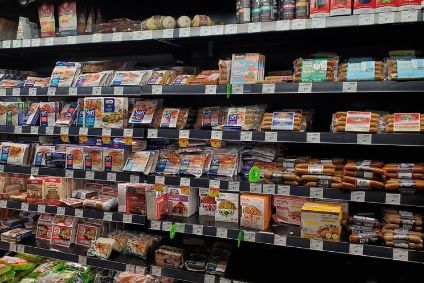
Agreement has been reached in the row between grocers and food manufacturers in Canada over retailers arbitrarily increasing the fees they charge supplier to sell their products.
Empire, Canada’s second-largest grocery retailer – operating chains including Sobeys – has agreed to establish a Grocery Supply Code of Practice with Food, Health & Consumer Products of Canada (FHCP), which represents Canada’s food manufacturing sector.

Discover B2B Marketing That Performs
Combine business intelligence and editorial excellence to reach engaged professionals across 36 leading media platforms.
Walmart, the grocery chain which hiked its fees last July and caused the row, has not as yet added its name to the proposed code and nor has Metro Inc., which followed suit.
Michael Medline, CEO of Empire, said last October that Sobeys would not follow moves by Walmart and by Metro Inc to increase fees, labelling the action “hard to believe and repugnant”.
Empire and FHCP say that through the proposed code they are promoting “fairness and transparency in the Canadian food retail industry” and are encouraging other grocers, suppliers and industry stakeholders to come forward to support and provide input into this proposal.
Empire and FHCP say the draft code aims to stabilise relations between retailers and suppliers by calling for fair and efficient handling of all negotiations and commercial agreements.

US Tariffs are shifting - will you react or anticipate?
Don’t let policy changes catch you off guard. Stay proactive with real-time data and expert analysis.
By GlobalDataFHCP, in different guises, has been advocating for a code for the last two decades, as a result of complaints of unfair practices in the marketplace relating to issues such as arbitrary fees, cost increases imposed without notice, and late payments.
Empire said it agrees with FHCP that the "negative ripple effects" from poor retailer-supplier relations make their way to consumers and can impact pricing, product choice and job opportunities in Canada.
It said these practices create "very challenging conditions" for suppliers and manufacturers to thrive in Canada and suggests the proposed code will "create an environment with more certainty and transparency, where suppliers can confidently invest in products, facilities, manufacturing and job creation".
Medline said: "The Canadian grocery industry made unprecedented strides in navigating the Covid-19 pandemic as retailers and suppliers collaborated to protect the food supply chain and support customers like never before.
"This goodwill was a positive development during a difficult time. Let's not go back to the old way of doing things. We began working in earnest with the FHCP on this values-based proposal in the fall of 2020. We hope our principled proposal will be a springboard to move our industry forward. This code is a win for consumer product companies and retailers, as well as all other players in the food supply chain, including farmers and customers."
Those behind the proposed code suggest it will provide suppliers with certainty by setting out standard rules of engagement between the parties. The code would enshrine a set of good-faith industry business principles, such as requiring written agreements between large retailers and suppliers, ensuring changes to business terms are not imposed arbitrarily.
It would also require retailers to designate a code compliance officer to oversee code compliance and would be linked to the introduction of a government adjudication system to manage complaints of unfair practices under the code, its creators hope.
Michael Graydon, president and CEO of FHCP, said: "Retailers and suppliers are tough and savvy and our businesses do not always see eye to eye. However, we believe we can build a supply chain on mutual trust, one that treats businesses of all sizes fairly and delivers for all Canadians who count on us every day."
It was eight months ago the local arm of US supermarket giant Walmart advised suppliers it was increasing the fees it charges to sell their products, both in stores and online.
United Grocers Inc., a group representing major grocers including Metro Inc. and Alimentation Couche-Tard, then told suppliers it expects the same terms as its competitors.
The moves re-invigorated calls for the supermarkets' power to be checked and, in response, food organisations in Canada joined forces with beverage industry bodies and farming groups to call on the country's government to take action.
just-food has asked Walmart and Metro Inc. whether they intend to sign up to the proposed code of practice.
Read just-food's analysis from September - Can Canada's grocers and suppliers reach detente





